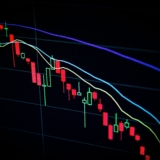Oil Prices Reach Yearly Highs as Saudi Arabia and Russia Extend Relationship
Global oil markets witnessed a surge in prices last week, hitting their highest levels of the year, amid growing concerns over tightening crude supplies following announcements from Saudi Arabia and Russia regarding the extension of production cuts.
Both of the world’s leading oil benchmarks, Brent crude and U.S. West Texas Intermediate (WTI), experienced notable gains, reaching levels not seen since November 2022. Brent futures recorded a 0.8% increase, settling at $90.65 on Friday, while WTI rose by 0.7% to settle at $87.51, following a higher close on Wednesday.
These gains came on the heels of significant increases the previous week, with Brent surging by approximately 5% and WTI by roughly 7%. In 2023, both benchmarks have surged by more than 13%. This upward trajectory was prompted by an announcement from Saudi Arabia and Russia, which jointly declared their commitment to extend voluntary oil production cuts by an additional one million barrels per day through the end of 2023.
According to the state-owned Saudi Press Agency, this latest reduction will bring daily crude output to approximately nine million barrels, subject to monthly reviews. Riyadh initially began reducing production in July and has subsequently extended the cut twice.
Saudi Arabia and Russia coordinated their actions with the OPEC+ group, which encompasses several oil-producing nations. Prior to this announcement, OPEC+ had implemented production cuts totaling approximately 3.66 million barrels per day. Treasury Secretary Janet Yellen expressed regret over the previous OPEC+ production cut and noted that it had adverse implications for global economic growth.
The impact of these production constraints is being felt by American consumers, who are grappling with elevated gasoline prices at the pump amidst global supply limitations. As of Sunday, the U.S. national average gas price had risen to $3.82 per gallon, as reported by AAA. While this marks a historically high price for this time of year, it remains below the record high of $5.01 recorded in June 2022.
The White House has previously criticized Saudi Arabia’s production cuts, with President Joe Biden warning of potential consequences for the country’s cooperation with Russia on oil production. Last week, the Biden administration took a significant step by announcing the cancellation of several oil and gas leases that had been issued to an Alaskan state economic development agency in 2021.
The U.S. Department of the Interior rescinded seven 10-year leases encompassing 365,775 acres in the Arctic National Wildlife Refuge (ANWR). These leases were previously held by the Alaska Industrial Development and Export Authority, signaling a shift in the administration’s stance on energy exploration and environmental preservation.




